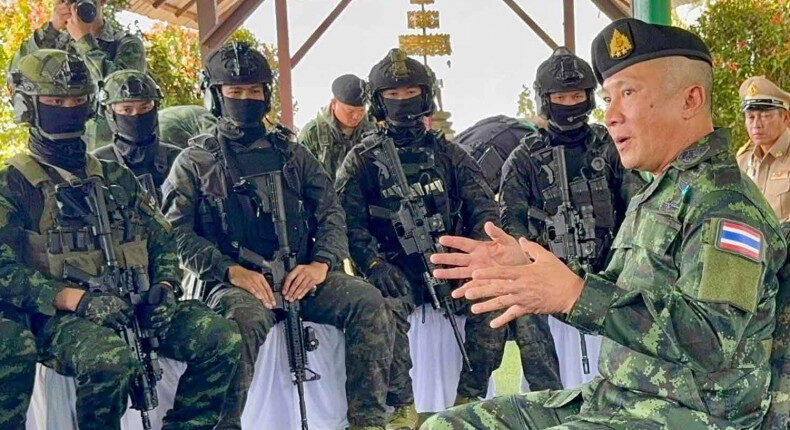A Call for De-escalation
Reducing Military Presence
Thailand’s Chief of Defence Forces, General Songwit Noonpakdee, has proposed measures to ease tensions along the Thai-Cambodian border, emphasizing coordinated checkpoint hours and the withdrawal of long-range weapons. His recommendations aim to restore calm following recent escalations, prioritizing civilian safety and cross-border trade. By aligning military operations with 2024 levels, Thailand seeks to foster stability in the region.
Synchronizing Border Operations
Streamlining Checkpoint Hours
General Songwit suggested that both nations standardize checkpoint operating hours, proposing a unified schedule from 8 a.m. to 6 p.m. to facilitate smoother movement of people and goods. While Thailand maintains that it has not closed its border crossings, only adjusted their hours, Cambodia has shut several checkpoints, disrupting trade. This synchronization could enhance economic activity and reduce friction between the two countries.
Strengthening Bilateral Dialogue
Leveraging Established Mechanisms
The general highlighted Thailand’s commitment to resolving disputes through diplomatic channels, such as the Regional Border Committee, Joint Boundary Commission, and General Border Committee. Recent progress in military-level talks, including joint border patrols conducted three times weekly, signals increased cooperation. These efforts aim to prevent further confrontations and maintain peaceful relations along the contested border.
Prioritizing Civilian Safety
Balancing Security and Stability
General Songwit emphasized that military presence should remain proportionate to ensure the safety of civilians on both sides of the border. By advocating for the removal of long-range weaponry, Thailand aims to reduce the risk of escalatory incidents. The focus on de-escalation reflects a broader goal of preserving national sovereignty while fostering a secure environment for border communities.
Addressing Transnational Crime
Tackling Scam Networks
Beyond border tensions, General Songwit addressed the growing issue of transnational scam networks operating in the region. A recent tripartite meeting with Thailand, China, and Myanmar underscored the need to dismantle call center scam syndicates. With over 8,000 individuals repatriated and an estimated 50,000 still involved, Thailand’s Task Force 88 is intensifying efforts to curb these illegal activities.
Building a Multinational Response
Forming a Special Task Force
Thailand plans to establish a multinational task force to combat scam syndicates, with Task Force 88 leading operations. This initiative follows reports of scam operations relocating to eastern regions due to disruptions in Myanmar. By collaborating with domestic and international authorities, Thailand aims to strengthen regional security, addressing both border disputes and cross-border crime effectively.









